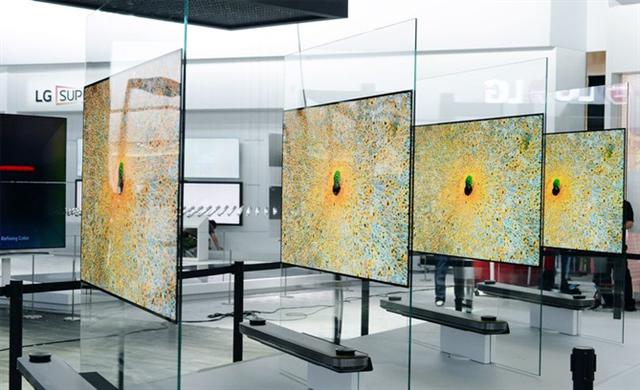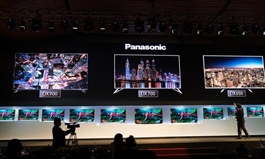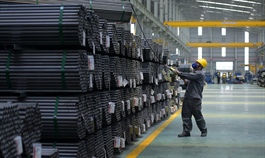South Korean TVs dominate Vietnam market as Japanese rivals wither away
South Korean TVs dominate Vietnam market as Japanese rivals wither away
South Korean TV brands Samsung and LG have dominated the market in recent years, accounting for more than a 60 percent market share last year.
LG TVs on display in an electronic store in Hanoi. Photo by VnExpress/Tuan Hung.
|
Since 2015 they have held a 50-60 percent share.
Samsung, the world’s leading TV manufacturer, and LG, both saw their market share rise by 2 percentage points in 2020 to 41 percent and 20 percent, with the former in first place and the latter in third.
On the other hand, Japanese brands, which accounted for half the market until 2014, have gradually disappeared.
Sony was the only Japanese brand to have a double-digit share last year, and was the second largest in the market with 21 percent despite declining by 3 percentage points from 2019.
The Vietnamese TV market only reflects a global trend.
Japanese electronics maker Toshiba sold its North American TV business to Taiwanese electronics manufacturer Compal Electronics in 2015.
The same year another Japanese company, Panasonic, decided to stop production in the U.S. and China. It recently stopped production of low-end TVs in Vietnam.
Peter Richardson, research director at Hong Kong market research firm Counterpoint, said: "The reason Japanese players suffered was down to their strategy. Japanese brands like Sony and Panasonic have little capacity to produce LCD and LED panels, so they are not able to bring anything differentiated to the market."
Nguyen Huy, spokesperson for an electronics store in Hanoi, said South Korean TVs have been replacing Japanese brands thanks to their beautiful design, reasonable prices and good sales policies.
Samsung and LG produce TVs in every segment with pricing ranging from a few million dong to billions (VND1 million= $43.7), and "South Korean TVs are 20-30 percent cheaper than Japanese models with the same size and resolution," he said.
Samsung and LG offer consumers a wide range of choice, selling besides traditional TVs also some unique ones like LG’s wallpaper and Samsung’s picture frames, he said.
Tran Phong, an audiovisual specialist, said: "TVs have evolved from being an asset to a home decoration. Youngsters who are keen on state-of-the-art technologies and house furnishing prefer Korean TVs with unique designs to dull Japanese TVs."

























